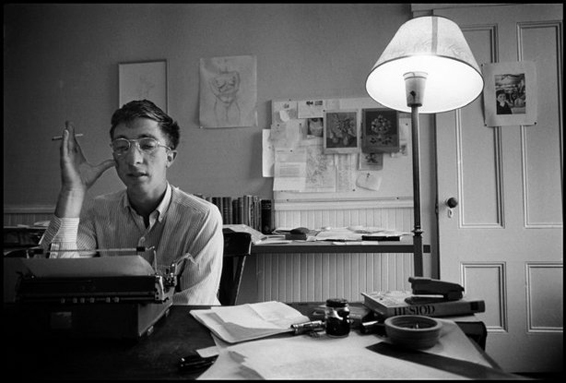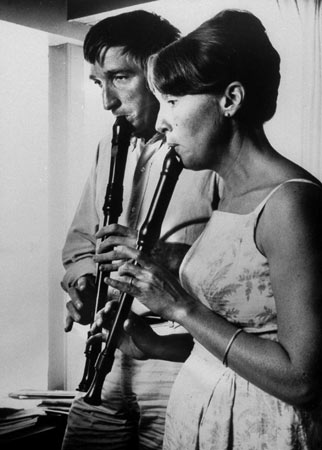 There he is, churning out 6 pages worth of consummate New Yorker short story. The problem is, I don't always like New Yorker short stories. So getting through all of Updike's Early Stories: 1953-1975 - even just a few stories at a time, over more than a month - was tough at times.
There he is, churning out 6 pages worth of consummate New Yorker short story. The problem is, I don't always like New Yorker short stories. So getting through all of Updike's Early Stories: 1953-1975 - even just a few stories at a time, over more than a month - was tough at times.Earlier this year I had my first encounter with Updike in the form of his Rabbit novels. Here were my thoughts way back then. Reading those four novels back-to-back might have spoiled me on his characters. There just isn't enough time in some of these stories for much depth in the characters and at their most one-dimensional Updike's characters can be pretty weak and samey from story to story. The young men are naive and weak, the older men dashing horndogs, and the women, most disturbingly, often relegated to scenery or singular objects of desire. Also, most everyone is white as hell. I feel like I need some Junot Diaz just to remind myself that writing doesn't have to be this prim. Here's an example of Updike having some good, clean fun:

(I should note that although I am an aesthetically-inclined white dude - Updike's office above looks awesome to me - I have pretty easily resisted the urge to play the recorder during my adult life.)
Some specific stories:
Pigeon Feathers - A beautiful story from the Olinger section of the book that was pretty damned great until it gets Intelligent Designy at the end. Maybe people who believe in I.D. should use this story instead of a crazy museum with displays of dinosaurs and people hangin' out. Flintstones episodes do not equal science people.
A&P - An appropriately short story that supposedly gets taught in school. It kind of gets lost in this huge book.
Maples Stories - This crazy couple pops up a bunch in these stories. Their super-fun marriage featured an "understanding" and there was much talk of one spouse knowing about the other's lover. How protestant, or maybe, Russian?
Friends from Philadephia - A nice lil story I enjoyed because of the Raymond Carver-like tension that just hung over everything. It just seemed like someone was about to shout, "WHADDA YA THINK YER BETTER'N ME?!?!" at any moment. But they don't. Carver would love it. Then he would get drunk and fall asleep.
The section "Far Out" seems to include stories where Updike experimented outside his comfort zone, including a story about dinosaurs. And like David Sedaris' weird animal fiction, the less said, the better. Actually, these stories were worse than that. Sorry to drag you into this David. Tell the Rooster I said, "hey."
I started Flann O'Brien's At Swim-Two-Birds (from his "Complete Novels" - a big book) alongside a rereading of Middlesex. Supposedly O'Brien's an under-read Irish writer actually named Brian O'Nolan who also wrote under another super-Irish pseudonym: Myles na gCopaleen (not misspelled, I promise). As an over-reading, potato-lovin' Irish-American I thought I'd give him a shot. I'm interested to see influence of Joyce since I'm enjoying Ulysses more and more in retrospect (maybe the best way to enjoy it?).

